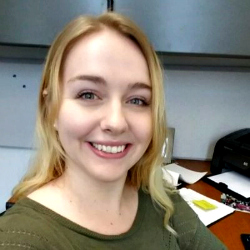 Why do you want to be a Social Worker?
Why do you want to be a Social Worker?
In my undergrad in college, I had a great experience volunteering, and was empowered by the experience of a making a positive impact at a community level. I also wanted to change the world. I wanted to find a way to channel that experience I had as a volunteer, but didn’t have a clue of how to do that and get paid at the same time. I took an intro to social work class on a whim, and after reading the Code of Ethics, I realized that the values of the social work profession were congruent with my own personal values. As I learned more about social work, and its mission of social justice, I realized that this was the change I had wished to seek in the world. Social work is different from any other profession, including the many closely-related deviations of other mental health professions, in that it seeks to address the systems of oppression at the individual, and beyond, by confronting them at the community and institutional level.
Why a Fordham MSW?
Fordham’s options within the MSW program are unlike many of what I came across during my grad school search. It has a unique macro-level option (Track A: Human Leadership) which does not include clinical-based social work interventions, and aims to teach students how to address social justice issues through mezzo and macro level interventions such as policy analysis, program development and evaluation, and administrative leadership. Now that I’m in the program, I realize how valuable this unique concentration is. It’s broad, which allows students to have a wide range of skills they can apply to whatever professional goal they have post-graduation. If you’re interested in policy analysis and advocacy, developing programs, fundraising, or leading groups within an organization or community—these are all fields that you would be prepared for with Track A. I have a clear leaning towards macro social work, but it should be noted that Fordham also offers equally comprehensive clinical and research concentrations, as well as a concentration that combines of the knowledge of Track A and with the teachings clinical social work (known as Track B).
Dean’s Challenge
I’m stepping up to the Dean’s Challenge by taking this knowledge I’ve learned beyond the classroom and applying it to my internship, as well as outside of it. I’m currently in the process of analyzing policy concerns that are applicable to the student base at my internship at the Fordham Center for Nonprofit Leaders program. I’m also in the process of planning educational events with the goal of educating GSS students about how they can effectively get involved in social change at the policy level. Outside of GSS, I’ve joined NASW and will be presenting at the upcoming NYC Chapter conference, and I’m joining Fordham’s Social Action Club. I have also been attending my Queens Community Board committee meetings and signed up for GSS’s LEAD day, where students go to Albany to advocate to their local politicians about social justice issues they aim to address. I’m also slowly but surely becoming a thorn in my congressional representatives’ side by regularly calling and emailing them about issues that are at the forefront of our country’s political agenda.


